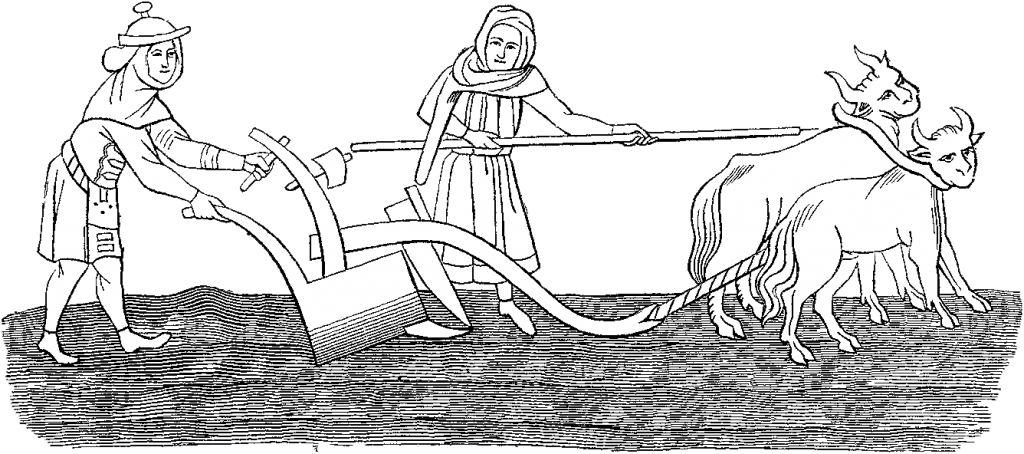As Catholics approach the 2020 election with an elevated ferocity of debate over how they can or can not vote in good conscience, the emphasis has largely been on just a few tenets of moral theology, mostly having to do with human sexuality and abortion. However, the church’s teachings on sexuality are only one small piece of what is intended by “Catholic ethics” – and these teachings have fluctuated significantly over the centuries. Much more consistent has been this vital aspect of Catholic social teaching: on the dignity of human work and the rights of the worker. Yet the church’s teachings on work, wages, and wealth are frequently neglected or ignored.
How many Catholic families do you know, subsisting below the poverty line, while one or both parents work for “good Catholic” employers? The term “good Catholic” seems to refer specifically to employers who prioritize patriarchy and heteronormality, who frown upon abortion and birth control, who are explicit in displays of piety. Why does it never seem to be used while taking into cognizance the way an employer treats a worker?
Pope Francis has been especially vocal on this issue, even going so far as to state that defrauding a worker out of their wages is a mortal sin:
Even in Italy, there are those who leave people out of work to protect their assets, but whoever does this, “Woe to you!” not according to the pope, but according to Jesus, he said.
Jesus, he said, is the one who says, “Woe to you who exploit people, who exploit labor, who pay under the table, who don’t pay pension contributions, who don’t offer vacation days. Woe to you!”
Wage theft, like “skimming” from people’s paychecks, “is a sin; it is a sin,” the pope said, even if the employer goes to Mass every day, belongs to Catholic associations and prays novenas.
When an employer doesn’t pay what is due, he said, “this injustice is a mortal sin. You are not in God’s grace. I’m not saying this, Jesus says it, the Apostle James says it.”
This might sound extreme, and many might say that this is simply Francis promoting a leftist agenda. But on this particular topic the church has, traditionally, been remarkably consistent. The church lists both oppression of the poor and the withholding of just wages as “sins that cry to heaven for vengeance,” and this has been reiterated in the Douay Catholic Catechism, and in the more recent Catechism of the Catholic Church.
The Catechism teaches that:
A just wage is the legitimate fruit of work. To refuse or withhold it can be a grave injustice.221 In determining fair pay both the needs and the contributions of each person must be taken into account. “Remuneration for work should guarantee man the opportunity to provide a dignified livelihood for himself and his family on the material, social, cultural and spiritual level, taking into account the role and the productivity of each, the state of the business, and the common good.” Agreement between the parties is not sufficient to justify morally the amount to be received in wages. (2434)
John Paul II, certainly no communist, wrote in Laborem Exercens:
Yet the workers’ rights cannot be doomed to be the mere result of economic systems aimed at maximum profits. The thing that must shape the whole economy is respect for the
workers’ rights within each country and all through the world’s economy.
And in Centesimus Annus:
It is right to struggle against an unjust economic system that does not uphold the priority of the human being over capital and land.
The church has repeatedly taught in favor of labor unions as part of the just struggle to ensure that the worker is “paid a wage sufficient to support him and his family” (Pius XI, Quadragesimo Anno).
And this is in the context of even more radical views on wealth and ownership, according to which some Catholic traditions suggest not only that the worker is due a living wage from an employer, but also that the poor are justly owed the excess wealth of the rich. As St. John Chrysostom wrote: “Not to enable the poor to share in our goods is to steal from them and deprive them of life. The goods we possess are not ours, but theirs.” And while much has been made of Aquinas’s teachings on the legitimacy of private property, it should also be recalled that he taught that “Whatever certain people have in superabundance is due, by natural law, to the purpose of succoring the poor.”
These teachings are not designed to make us comfortable. However, as many Christians like to remind others, religion is not necessarily intended to provide comfort. C.S. Lewis memorably wrote: “I didn’t go to religion to make me happy. I always knew a bottle of Port would do that. If you want a religion to make you feel really comfortable, I certainly don’t recommend Christianity” (God in the Dock).
Right-wing Catholics who enjoy this quotation when they imagine it referring to LGBTQ Catholics and women who use birth control might do well to remember that it could just as easily refer to capitalists and employers who refuse to pay a just wage. If a Catholic employer is not paying a living wage that can support a family, if a Catholic employers’ employees have to rely on food stamps in order to get by, if a Catholic employer is enjoying vacations and luxury items while the children of their workers subsist on peanut butter and jelly – the traditional teachings of the Church, on the dignity and rights of workers, are intended to make them feel uncomfortable.
When we talk about “good Catholic” employers, and “good Catholics” schools or universities, we should address the question of how they treat their workers. If their workers are not granted living wages, sufficient to provide for a secure family life, those employers and schools are not in keeping with Catholic teaching and should, rightly, be regarded as heterodox. Similarly, policies that do not provide for the rights of the workers, that are anti-union or anti-living wage should be regarded as complicit in grave objective evil.
As it stands, the comforting aspects of the faith appear to be reserved for the rich and privileged, while the harsh aspects intended to provoke discomfort are meted out to the poor and marginalized. Catholics need to be more vocal and assertive about our tradition of teaching on the rights of the worker, especially as the 2020 election approaches, and the Right persists in glossing over moral issues pertaining to wealth and poverty, focusing solely on the issue of abortion – especially given that, realistically speaking, the Right has never succeeded in making good on its promises of ending abortion, but abortion rates tend to go down when more families are able to live in relative material security with the assurance of just wages and protection from poverty.
image: Anglo-Saxon_ploughmen.png













